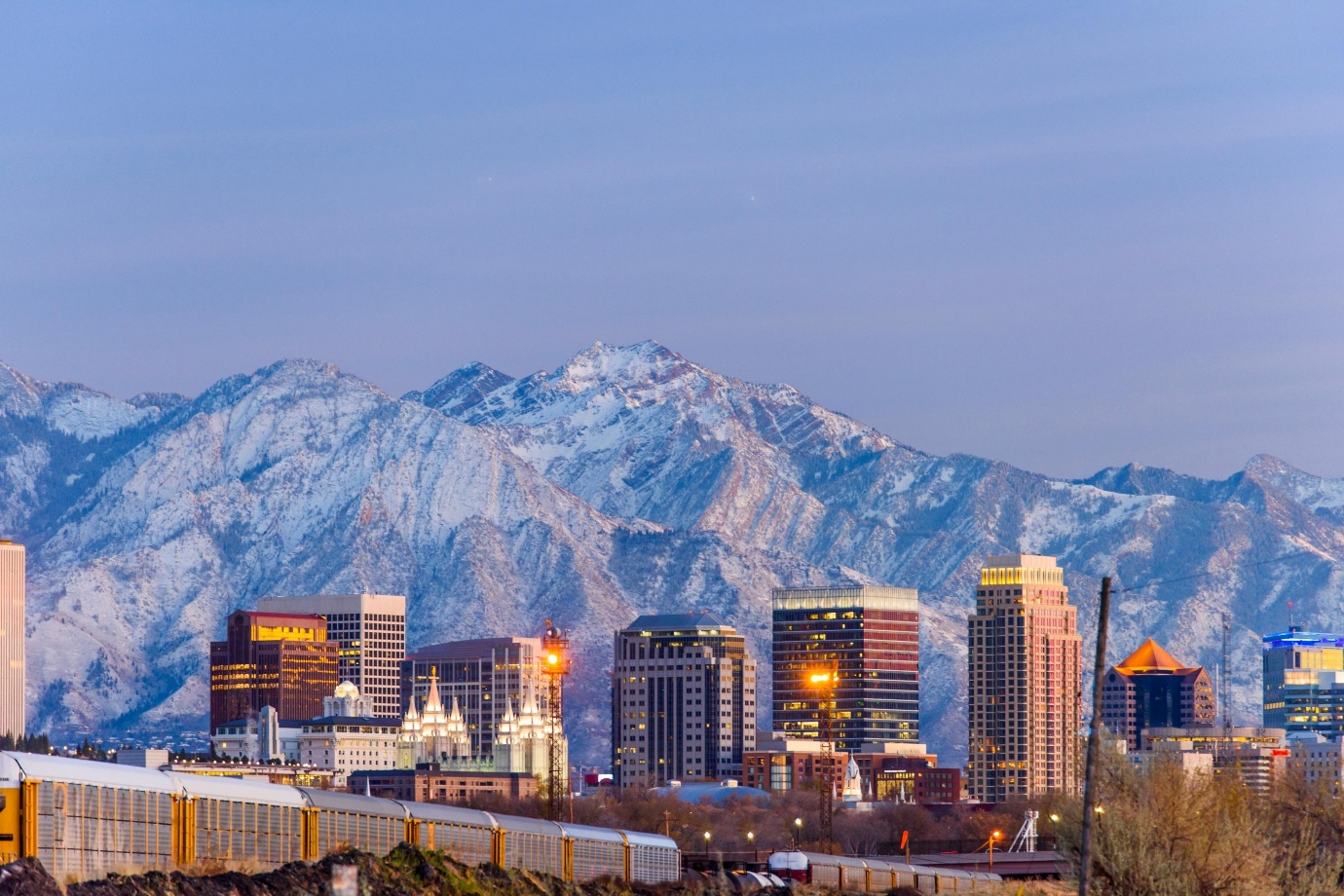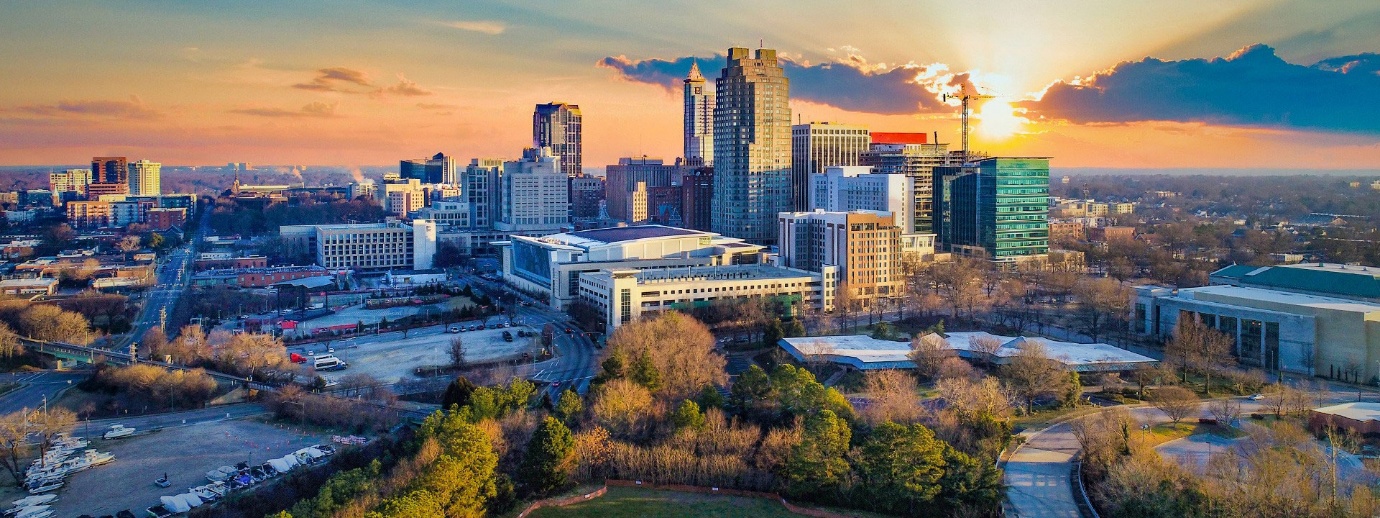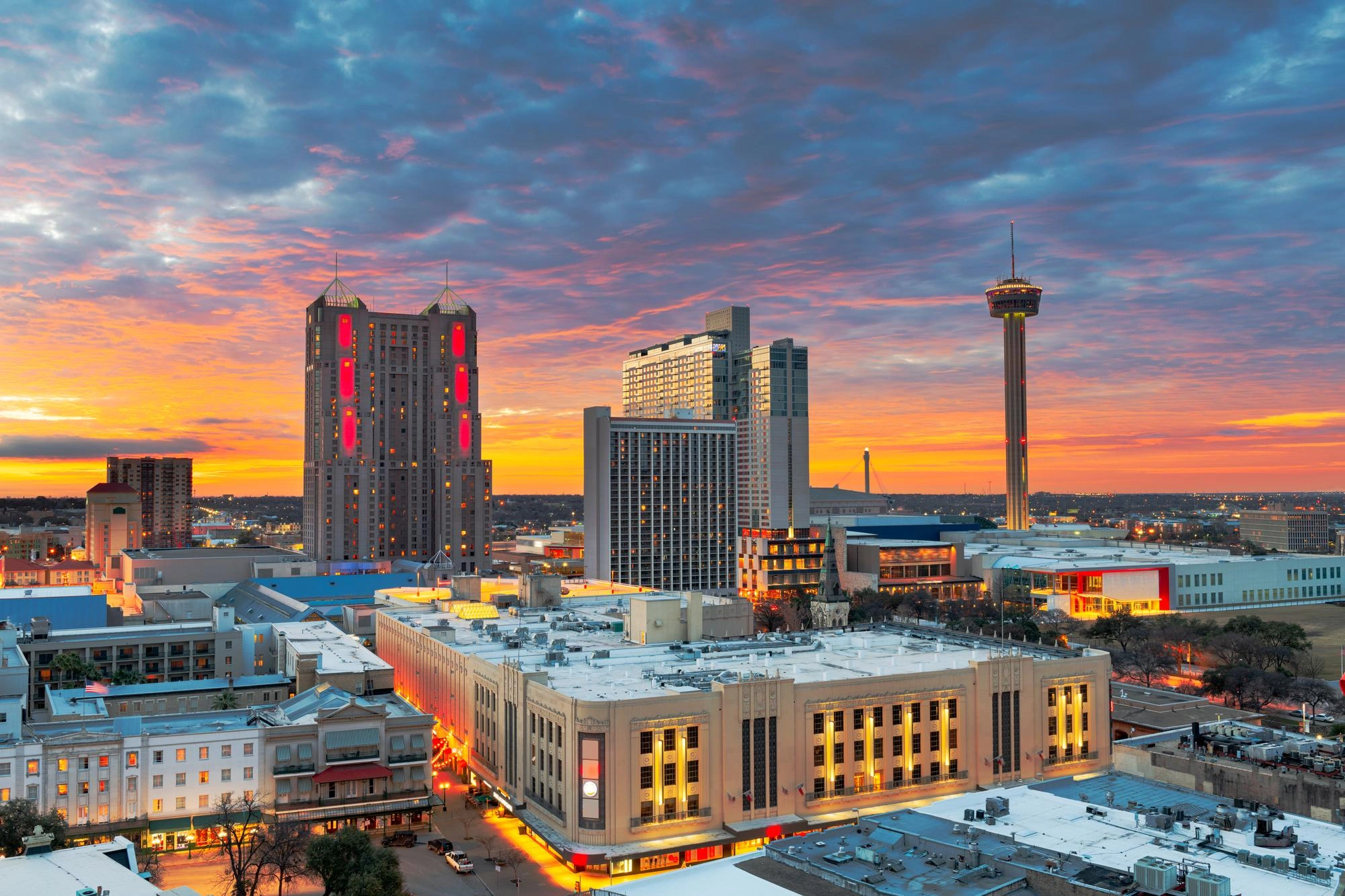Whenever anyone thinks of starting a tech career, Silicon Valley is the first name that comes to their mind. And, why not? It has been the heart of tech innovation, home to tech giants like Apple, Google, Meta, and more. It enjoys a reputation as a global innovation hub, attracting startups and venture capitalist firms. Also, a third of U.S. venture capital investments go into the San Francisco Bay Area, making it an important destination for tech job seekers and entrepreneurs. But in the last few years, many new tech hubs have emerged in the USA apart from Silicon Valley. Due to high living costs, excess competition, and the rise of remote work, companies and tech professionals seem to be looking at other cities beyond Silicon Valley. These emerging tech hubs, such as Austin, San Jose, etc., attract because of their lower costs, less competition, and vibrant lifestyles. Let’s explore some Emerging Tech Hubs: Cities Beyond Silicon Valley for Tech Jobs.
In this blog, we will take deep dives into some of these rising cities and learn how they are becoming hotspots for tech jobs. Read this blog, whether you are a job seeker, as these cities are worth considering when you are hunting for tech jobs.
Why Look Beyond Silicon Valley?
The Bay Area leads the tech innovation, with companies like Google, Nvidia, Adobe, eBay, OpenAI, Apple, Alphabet, and Meta headquartered here. It is home to over 2000 tech companies and has for decades attracted investments from across the USA. The perfect climate, natural surroundings, and closeness to top schools like Stanford and UC Berkeley all contributed to its growth.
While it offers many benefits like more jobs, higher stock prices, and access to opportunities, it is becoming extremely expensive. California is one of the highest-taxed states in the country. The median home price in the Bay Area is around $1 million, and a two-bedroom apartment can cost $2,500 a month.
The high cost of real estate makes it impossible for low-budget companies and startups to stay here. Add to that the fierce competition. As all top companies are located here, the best talents are hired by them, offering lucrative salaries. The small companies have to struggle to find and retain talented professionals. Many Silicon Valley IT founders have said that they faced challenges in hiring and retaining professionals in specialized areas like cloud computing, AI, data science, security, and IT architecture.
Remote work has also changed things. It showed the companies that they can now hire people from anywhere. In addition, video and collaboration tools allow the teams to work from any location. These reasons also make the new tech hubs popular as the professionals don’t need to relocate to costlier cities, and they can work from a place that is affordable and offers a better quality of life.
Top Cities Tech Jobs in the USA for
Austin, Texas
Austin, also known as the “Silicon Hills,” is a top destination for tech companies and workers. It offers a business-friendly environment and has a lively culture. As the University of Texas at Austin is nearby, it is easier for the companies to find fresh, skilled graduates.
Compared to tech cities like San Francisco, Austin is more affordable, with a cost of living about 40% lower. Tech professionals like software developers earn $120,675 per year, similar to bigger hubs. The cherry on the cake – there is no state tax, meaning you keep more of your paycheck.
Companies like Tesla and Oracle have moved their headquarters to Austin, and startups are also flourishing. Austin also hosts events like South by Southwest (SXSW) to attract entrepreneurs and investors from all over. These events have screening, exhibitions, keynotes, etc., which are a good opportunity for networking and growth.
Denver, Colorado
Denver, Colorado, is another growing tech hub. It is surrounded by beautiful mountains and allows skiing, hiking, and other outdoor activities. The city also has a lively culture and focuses on sustainability. All these contribute to a good quality of life for people staying here. Though not everything is cheap here, compared to big tech cities like San Francisco, it is still more affordable.
Denver’s tech growth started in the 1970s with the Denver Tech Center. Lately, big companies like Amazon, Google, and Palantir have expanded there, making it even more popular. In 2020, Amazon invested $1.5 billion in Colorado, creating thousands of jobs. Startups in aerospace, biotech, and software are also flourishing due to the support of local government and strong funding from investors.
Denver’s tech scene is multicultural, as there are many immigrants from around the world. Plus, there is no dearth of hiring pool as over 5,000 STEM students graduate from the University of Colorado each year. The city supports fresh ideas and creativity, making it a friendly place to work and thrive.
Denver’s tech community is quite active with regular arrangements of meetups, conferences, and events for networking and career growth. As it’s located between the East and West Coasts, it helps professionals to stay connected nationwide.
Salt Lake City, Utah
Salt Lake City, called “Silicon Slopes,” has become a center for cloud computing and software development. Big companies like Adobe and Qualtrics are based here, and startups are growing thanks to more venture capital. Utah’s business-friendly rules and no state income tax offer many benefits for small companies and startups. The living costs here are also much lower than in Silicon Valley, making it a perfect destination for work.
Tech recruiters are acting as a bridge, connecting companies like Overstock and Pluralsight with skilled workers. The city offers plenty of activities to do after work to relax. Its friendly tech community is also appealing to professionals. From 2017 to 2021, venture capital for Utah startups jumped by 50%, showing a strong tech scene. Additionally, the University of Utah and Brigham Young University produce thousands of tech graduates yearly, keeping the talent pool strong.
Columbus, Ohio
Columbus is also emerging as a tech hub. Its government is more focused on testing and innovating products. Due to this, companies like Amazon, Facebook, and Intel have set up operations here. In 2022, Intel announced the construction of two chip factories outside Columbus, with plans to invest more than a billion dollars.
From 2020 to 2021, startup investments in Columbus jumped from three million to over a billion, with companies like Olive (healthcare tech) and Path Robotics (autonomous robotics) leading the charge.
With over 10,000 STEM graduates each year from Ohio State University, the city provides a consistent talent pool. Columbus also offers an affordable lifestyle. The housing costs here are around 50% lower than in Silicon Valley. Combining opportunity and affordability, this is an ideal place for tech workers looking for a good career with greater savings.
Raleigh, North Carolina
Raleigh, North Carolina, has become a top choice for tech companies due to its strong and reliable network infrastructure. The state is also investing in its tech future—Apple is receiving six million in funding over 39 years to grow its operations in North Carolina.
Apple plans to spend a billion dollars building a new campus in the Research Triangle. This place is also known for top schools like Duke University, UNC-Chapel Hill, and NC State University. As thousands of skilled graduates pass out every year from these universities, it offers a great advantage for companies to hire local tech talent.
North Carolina is also leading the way in new industries like esports. It was the first U.S. state to create a million-dollar grant to support esports events. And Epic Games, creator of Fortnite, plans to turn an old mall in nearby Cary into its new global headquarters.
The average tech salary in Raleigh is around $100,000, and the cost of living is nearly 45% lower than in San Francisco.
Houston
Houston is emerging as a strong startup hub as it offers affordable living and growing job opportunities. In the last five years, startups in Houston have raised over a billion dollars in venture capital. Besides, the city has launched more than 80 startup support groups. This includes co-working offices, incubators, accelerators, as well as programs run by schools and nonprofit organizations.
Another big plus is that the University of Houston and Rice University both offer top-rated entrepreneurship programs. In 2025, the University of Houston plans to open an Innovation Hub to support more startups and tech talent.
Another exciting part of the city’s growth is the Ion District, a 16-acre innovation space created in 2021. It is now home to over 30 businesses, according to the Greater Houston Partnership.
Orlando, Florida
Orlando is known for Disney and theme parks, but it’s quickly becoming a tech hub. According to the Bureau of Labor Statistics, tech jobs in Orlando are expected to grow 27% by 2030—more than twice the national average for computer and IT roles. This makes Orlando one of the fastest-growing metro areas for tech careers.
Big companies like EA, Deloitte, Oracle, Verizon, Veritas, and Stax have already opened offices in the city. They’re attracted to Orlando not just for its location, but for its growing talent pool. The University of Central Florida (UCF) awarded more than 4,600 STEM degrees in the 2022–2023 school year. UCF’s graduate game design program is also ranked among the top 2 in the nation by The Princeton Review and PC Gamer.
San Antonio
San Antonio is another growing tech hub for industries like engineering, cybersecurity, and robotics. A former Air Force base in the area now has the largest group of IT workers in the region, working in both the private sector and for defense companies, according to the San Antonio Report.
During the pandemic, many tech workers moved to San Antonio for its lower cost of living compared to Austin. Because of this, its tech workforce has seen tremendous growth. Tech Port, a modern innovation campus, is also located in San Antonio to support industries like Aerospace, energy, defense, medicine, and logistics.
With more opportunities and affordable living, San Antonio is becoming a great option for tech professionals looking to build a stable career.
Factors Contributing to the Rise of New Tech Hubs
Several factors are fueling the growth of these emerging tech hubs:
- Affordability: Cities like Austin, Denver, and Columbus are more affordable than Silicon Valley. Startups can save money, and tech workers can enjoy a better lifestyle with lower housing and living costs.
- Skilled Talent: Many of these cities are close to top universities, which means there’s a steady supply of smart and trained graduates. For example, Ohio State University supports Columbus, while Raleigh benefits from schools in the Research Triangle.
- More Investment: Tech funding is growing in these rising hubs. From 2016 to 2021, investment deals in emerging markets grew by 144% on AngelList, which is faster than Silicon Valley’s 77% growth.
- Remote Work Opportunities: With more companies offering remote or hybrid jobs, tech talent no longer needs to move to Silicon Valley. Now, people living in places like Salt Lake City or Orlando can land top tech jobs from home.
- Government Help: Programs like the Tech Hubs initiative from the U.S. government are giving funding to cities like Denver and Columbus to support local tech growth and innovation.
Challenges and Opportunities in New Tech Hubs
While these emerging cities offer great opportunities, they also pose many challenges. Infrastructure in some areas, like Columbus or Orlando, is still developing to support rapid tech growth. Competition for top talent is here as well as companies expand. Additionally, while venture capital is growing, it’s still concentrated in the Bay Area, which received 40% of U.S. investments in 2020.
Despite the challenges, the opportunities in these emerging tech hubs are worth it. In the cities of Denver and Fresno, there’s a visible trend of growing diverse industries. Over 30 companies in Denver are working in quantum computing, while Fresno, California, is a strong region for AgTech (Agricultural Technology).
These cities promote diversity and inclusion, attracting people from all different locations. They also have policies to encourage innovation and growth. As a result, professionals enjoy the benefit of decent-paying jobs, affordable living, and lively culture. Companies also benefit from cheap rentals and fresh graduates available from universities.
Conclusion
The tech landscape is no longer centered solely on Silicon Valley. Cities like Austin, Denver, Salt Lake City, Columbus, Raleigh, and Orlando are proving they can compete, each carving out a niche. With investments pouring in and remote work allowing geographic flexibility, these hubs are slowly becoming popular. They offer a balance of opportunity, affordability, and lifestyle that Silicon Valley can’t offer.
For tech professionals, these emerging hubs are worth exploring. To kickstart your tech career in these hubs, consider joining Job placement programs like SynergisticIT that offer training and job support to find high-paying jobs.
Since 2010, SynergisticIT has helped 1000’s of job seekers thrive in the tech industry. At SynergisticIT, we make candidates work on technologies and skills our clients demand.
Our unique approach goes beyond training, offering hands-on project experience. We also have a marketing team to promote your skills, so you don’t have to. Check out our candidate outcomes page to see the success stories.
Furthermore, we have a vast network of clients with whom we can introduce your resume. Since we have been in business since 2010, our brand name association increases your chances of being considered by potential employers. Please visit our Transform Your Future with SynergisticIT | Candidate Outcomes page to learn how we have helped Tech job seekers and how we can jumpstart your tech career!









